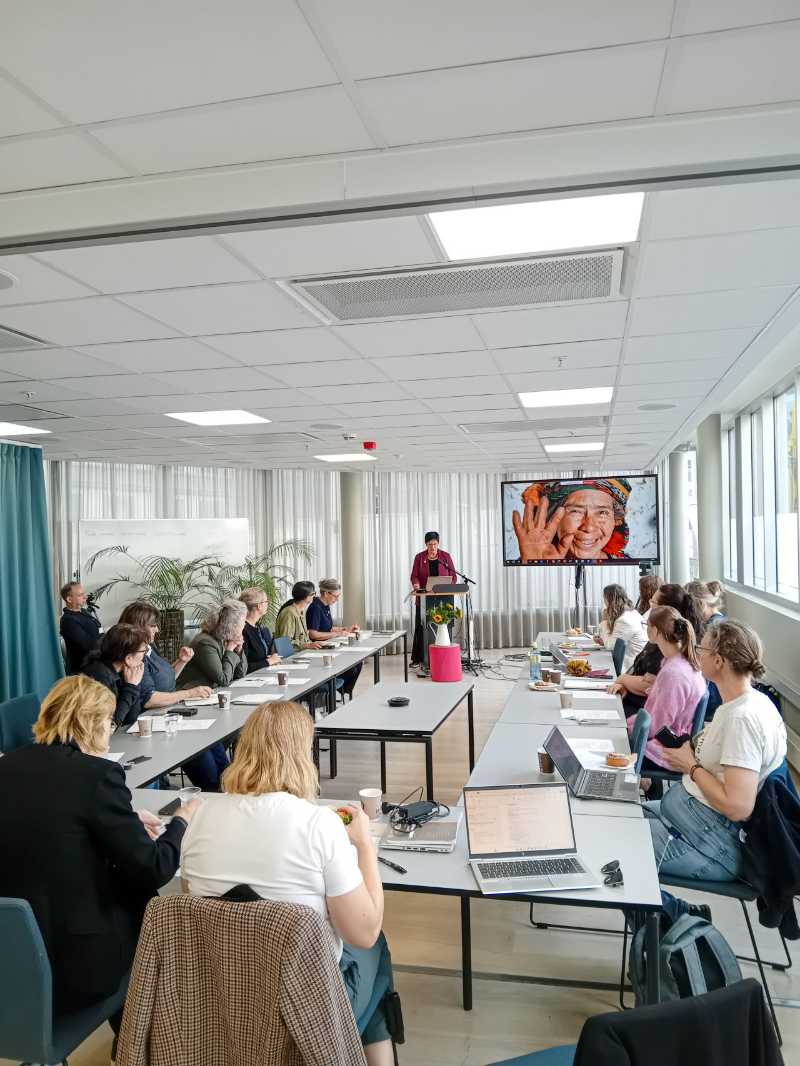
On 4 September, GPS Centre Director Torunn L. Tryggestad participated in a roundtable in Oslo addressing the global status of women’s rights and gender equality. Organised by the Norwegian Society of Rural Women and the Development Fund, the event brought together representatives from civil society and government to reflect on how political shifts—particularly in the United States—are shaping the landscape for gender justice worldwide.
In her remarks, Tryggestad focused on the Women, Peace and Security (WPS) Agenda, warning that political backsliding and funding cuts are narrowing the space for women’s participation in peace processes. She noted a troubling decline in peace agreements that include women, alongside a rise in harassment targeting women peacebuilders and activists.
The discussion highlighted that gender equality is essential for sustainable development. State Secretary Stine Renate Håheim emphasised that there can be no sustainable development without equality, pointing to the rise of well-organised and well-funded anti-gender movements. She underscored Norway’s responsibility to be a long-term, predictable partner that prioritises sexual and reproductive health and rights (SRHR) and supports civil society.
Cross-party collaboration emerged as a key theme, with Jannicke Rise Unsgaard (Liberal Party) calling for stronger Nordic cooperation and more platforms where politicians and civil society can work side by side. She warned of increasing disinformation and misogyny and stressed the need for unity across political lines.
From a field perspective, Elin Cecilie Ranum of the Development Fund shared how integrating gender equality into food security and climate adaptation programmes has led to tangible improvements. Nearly half of the women involved in their programmes report greater influence in household decisions, improved nutrition, and stronger positions in cooperatives—often through savings and loan groups that also provide space to address domestic violence and harmful practices.
The roundtable also amplified voices from the Global South, with Glendy Augustin, a Maya activist from Guatemala, offering a powerful reminder of the risks Indigenous women face. Despite increasing racism and rights violations, she emphasised that women continue to organise and resist—and need long-term, consistent support.
The event concluded with a shared call to action: to defend and advance women’s rights in the face of global backlash, and to do so through solidarity, sustained engagement, and cross-sector collaboration.





